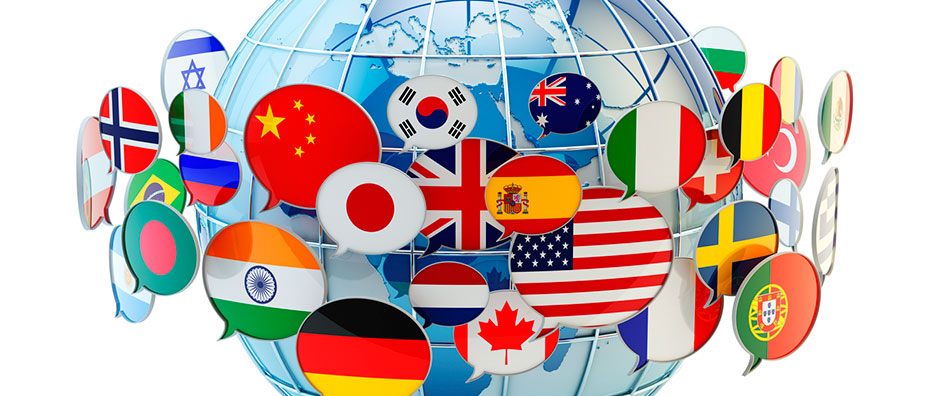The Bahá’í teachings encapsulate a profound vision for humanity’s cohesion and global unity. The concept of “Establishing the Machinery of World Unity” stands at the forefront of this ideology, advocating for a structured approach towards achieving a harmonious and interconnected world. As individuals navigate through the teachings, they will uncover various integral components designed to facilitate this mission. The following sections elucidate key themes and principles, providing readers with a comprehensive understanding of how these teachings function collectively to usher in an era of global unity.
1. The Foundation of Unity: Ethical Frameworks
At the crux of Bahá’í teachings lies an ethical framework that prioritizes the oneness of humanity. This principle posits that all individuals, regardless of background or belief, are members of a singular human family. Readers will find extensive discourse on moral imperatives that encourage love, respect, and understanding among diverse cultures. Central to this ethical code is the idea that unity does not necessitate uniformity; rather, it celebrates diversity as a strength. These moral tenets serve as essential guidelines for personal behavior and collective action, establishing a solid foundation for world unity.
2. The Role of Education in Promoting Unity
Education emerges as a pivotal element within the Bahá’í framework for world unity. The teachings advocate for universal education that transcends geographical, social, and economic barriers. By fostering critical thinking, compassion, and civic responsibility, education cultivates a generation equipped to embrace global cooperation. Readers can explore various educational initiatives and programs aimed at bridging gaps and dismantling prejudices. This transformative power of education is elucidated through narratives that demonstrate how informed individuals contribute to a more cohesive society.
3. The Importance of Consultation
Consultation is a unique feature of Bahá’í governance and decision-making, serving as a mechanism for resolving disputes and fostering collaboration. The teachings stress the significance of collective decision-making processes that encourage open dialogue and inclusivity. Readers will encounter principles of consultation that are not merely procedural but deeply rooted in spiritual and ethical considerations. By harnessing diverse perspectives, consultation aids in forming a collective vision of unity while ensuring that all voices are acknowledged and respected.
4. The Interconnectedness of Humanity
Central to the idea of establishing machinery for world unity is the notion of interconnectedness. Bahá’í writings emphasize that the welfare of one is intrinsically linked to the welfare of all. This conceptualization extends beyond mere rhetoric; it presents a call to action wherein individuals are urged to consider their impact on others. Readers will be introduced to concepts that promote global citizenship, encouraging an understanding of how local actions resonate on a global scale. This interconnected vision inspires a sense of responsibility among individuals to contribute positively to society.
5. The Role of Spirituality in Unity
Spiritual development is instrumental in the Bahá’í approach to establishing unity. The teachings advocate for an inner transformation that fosters virtues such as kindness, patience, and humility—qualities vital for harmonious coexistence. Readers will delve into spiritual practices and reflections designed to cultivate these virtues, enhancing one’s capacity to engage constructively with others. The interplay between spirituality and unity is further explored, demonstrating how personal growth contributes to collective well-being.
6. Principles of Justice and Equity
The pursuit of justice and equity forms a cornerstone of Bahá’í teachings. Achieving world unity is contingent upon dismantling systems of oppression and inequality that plague societies. The teachings advocate for the elimination of extremities of wealth and poverty, calling for a just distribution of resources. Readers will find an exploration of social justice initiatives, the promotion of human rights, and advocacy for the marginalized. The moral imperative to create a just society not only enhances individual dignity but also strengthens the communal fabric necessary for global unity.
7. Global Governance and Institutions
Establishing practical frameworks for world unity necessitates effective governance and international institutions. The Bahá’í perspective suggests the creation of a global governing body that operates on principles of fairness and cooperation. In this segment, readers will examine the roles of various international entities, including non-governmental organizations and intergovernmental organizations, in fostering unity. The teachings outline a vision for a world that is administratively interconnected, where global issues are addressed collaboratively, eschewing nationalistic tendencies that impede progress.
8. Bridging Cultural Divides
The Bahá’í teachings underscore the significance of intercultural dialogue in fostering understanding and reconciliation. Bridging cultural divides is essential in an increasingly interconnected world, where misunderstanding can lead to conflict. Readers will be introduced to initiatives and dialogues that champion multiculturalism and respect for differing viewpoints. By promoting encounters that facilitate cultural exchange, the teachings illustrate how empathy and respect can dismantle barriers, thereby fortifying the machinery for world unity.
Conclusion
The Bahá’í teachings on establishing the machinery for world unity present an intricate framework composed of ethical principles, educational imperatives, and spiritual growth. Each element works synergistically to promote a vision of a harmonious global community. As individuals and communities engage with these teachings, they become active participants in shaping a future characterized by compassion, understanding, and unity. In this era of complexity and division, the teachings serve as a guiding light, illuminating pathways toward a more united human experience.
